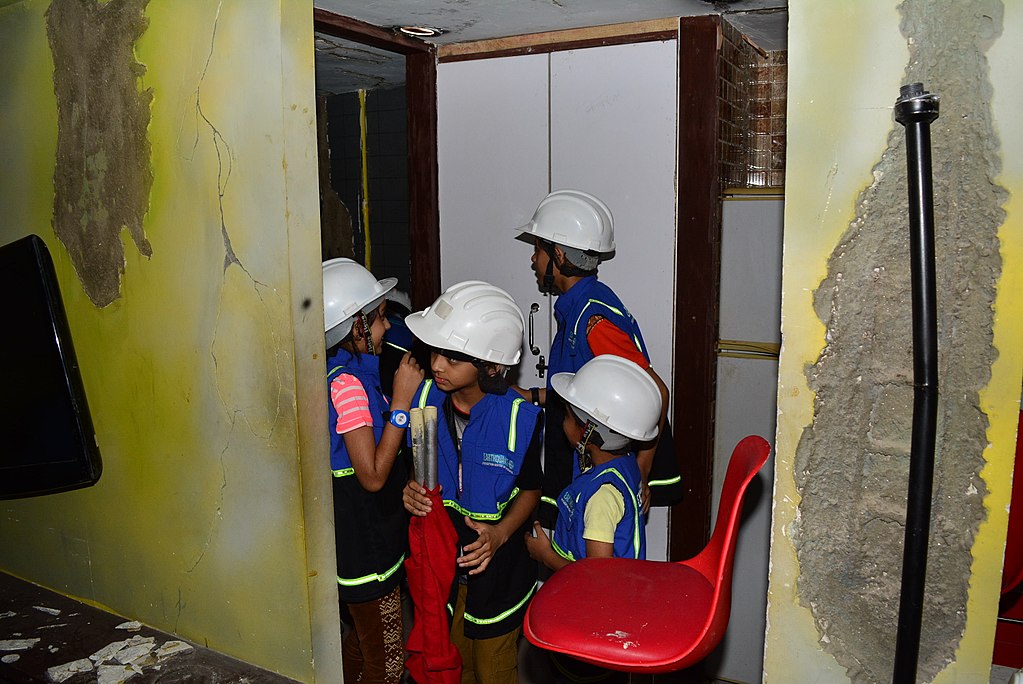- Teacher: Menes Moses Kavuma
- Semester One 2023-2024: Nachinyama Halwiindi
- Teacher: ruth ntono

The purpose of the Natural
Hazard Mitigation is twofold: to introduce the concepts and skills and
mitigation and recovery planning to the students and to relate natural hazard
mitigation processes to disaster planning. The course begins with an
understanding of hazard and risk analysis, how to develop mitigation strategies
for successful mitigation and recovery activities while addressing the
political, economic, and legal issues involved in the implementation of a
community wide program.
- Teacher: Glory Ruth Sibanda
- Teacher: LIVINGSTONE TENYWA
This course provides the skills
and knowledge needed for hazard mitigation planning and implementation. Effective emergency planning is the key to
surviving natural and manmade disasters. Risk analysis and the formulation of a
comprehensive plan, followed by a vigorous and continuing testing program, are
essential elements to surviving an emergency. Topics to be covered within this
course include threat assessment, risk analysis, formulating the plan, staffing
the Emergency Operations Centre (EOC), coordinating with supporting agencies,
continuing liaison activities, managing an actual incident, and conducting an
effective follow-up analysis.
- Teacher: Keith Tibenda
- Semester One 2023-2024: Nachinyama Halwiindi
Looks at key legislation regarding storage, handling, and transportation of hazardous materials, and reviews how the emergency management community plans, responds, and recovers when hazardous material incidents occur.
- Teacher: LIVINGSTONE TENYWA
- Semester One 2023-2024: Nachinyama Halwiindi
Introduction to Meteorology is a natural science course, taught within the School of Social Science, from the perspective of Geography, Environment, and Spatial Sciences. The course explores the natural processes and phenomena that take place in the Earth’s atmosphere and how everyday changes in the atmosphere affect people and human societies, as well as the interactions between these two spheres. Furthermore, this course is designed to acquaint the student with the fundamentals of meteorology, energy balance, adiabatic processes, cyclogenesis, and severe weather.
Humanitarian actions have
changed the world over time and include the elimination of slavery, moves to
abolish torture as a routine practice, improve treatment of people with a
mental illness, prison reform, and other social developments. The importance of
these changes cannot be underestimated. This course will be focusing on the
evolution of humanitarianism on an international level-- the development of
what is known today as “humanitarian action” being those people and agencies
that provide assistance to those affected by natural and human-induced
disasters and conflict. Students will learn how to address the main challenges
of communication in humanitarian settings and how to implement a communication
plan in the midst of humanitarian action.
- Teacher: Paddy Kayondo
A review of the skills
needed to effectively deal with the public and media before, during, and after
an emergency event. Topics will include: role and responsibilities of the
Public Information Officer, understanding the roles and responsibilities of the
media, conducting awareness campaigns, writing news releases, public speaking,
granting interviews, media management, and dealing with high-profile incidents.
An examination of the relationship between public safety agencies and the larger
community, with particular emphasis on administrative and policy dimensions;
the role of public safety agencies, the community’s involvement in establishing
that role, police-community relations programs, relationships with the media,
and professionalization and accreditation movements in public safety agencies
are addressed. The course focuses on the
relationship between the public safety agency—police, court, corrections,
fire—and the larger community. An historical framework of the public safety role
and an ecological model of the environment of public safety agencies is
provided as background. The course then focuses on the development of community-oriented
programs in public safety agencies, including attention to neighbourhood
service units, citizen advisory councils, complaint handling procedures, and
the role of an agency overseer. A significant element of the course addresses
relations with the media, since the media become one of the primary
intermediaries between the public safety agency and the community.
- Teacher: Samuel Kamanzi
- Teacher: LIVINGSTONE TENYWA
The role of technology in the support of emergency planning,
response, recovery and mitigation efforts. Application of current and emerging
web based technologies. Topics include: GIS, RSS, GPS, EWS, Medias, simulation
and modelling software, decision support and the application of current and
emerging web based technologies. Emergencies and disasters are extreme events that cause significant disruption. They require immediate response as well as
coordinated application of resources, facilities, and efforts beyond those
regularly available to handle routine problems.
They rise from both natural as well as man-made events. When does a situation become a crisis
invoking extraordinary resources and management priorities – distinct from
“business as usual?” The application of
technology in emergency management will be explored in this class. Examples of current and emerging technology
applications will be illustrated along with an explanation of critical issues
that are a part of the technology application.
- Teacher: Steven Nyanjwa
- Semester One 2023-2024: Martha Nyakueth Tot
- Semester One 2023-2024: Peter Ohisa Oromo Kajja
This course introduces a set of
public health problems experienced by people affected by natural disasters
and/or conflict. It discusses the many changes in people’s lives when they are
uprooted by a disaster, ranging from changes in disease patterns, access to
health care, livelihoods, shelter, sanitary conditions, nutritional status,
etc. We will explore what humanitarian interventions could look like if we want
to mitigate the effects of disasters. The course content is a mix of
theoretical knowledge and many practical examples from recent disasters. This
course is unique because it contains so many practical ‘real-life’ examples.
- Semester One 2023-2024: Martha Nyakueth Tot
- Semester One 2023-2024: Peter Ohisa Oromo Kajja
The history, methods, and philosophy of terrorism are
reviewed. Emphasis is placed on extremism as a foundation for terrorist
behaviour, types of terrorism, and how governments and law enforcement agencies
respond to terrorism. Case studies of
terrorist activities and implications for emergency response are highlighted.
- Teacher: LIVINGSTONE TENYWA
- Semester One 2023-2024: Martha Nyakueth Tot
- Semester One 2023-2024: Peter Ohisa Oromo Kajja
Students in this course will
analyze psychosocial challenges faced by the disaster victims, the caregivers
in the disaster situation, the community members who might not have been
affected by the disaster directly. Using an interdisciplinary approach to study
mental health, mental illness, and substance use, students will examine a
variety of perspectives and contextual factors used to explore issues and
concepts of mental health. Distribution patterns, risk factors, organization of
health systems, and societal efforts toward prevention and treatment will also
be reviewed. A focus will be placed on understanding the social determinants of
health and exploring issues from a population and public health perspective.
- Teacher: LIVINGSTONE TENYWA
- Semester One 2023-2024: Nachinyama Halwiindi
- Semester One 2023-2024: Martha Nyakueth Tot
- Semester One 2023-2024: Peter Ohisa Oromo Kajja
This course introduces students
to the relevance of gender to humanitarian programming. The course identifies
why addressing gender matters in humanitarian response and will make students
familiar with key frameworks underpinning gender mainstreaming approaches.
Acquire deeper knowledge on tools used to ensure programming is gender
responsive, such as gender analysis and the basic principles of ensuring equal
participation of males and females. It will enable students to take a close
look at specific cluster responses through the use of case studies. Another
session will be dedicated to assessing responses to gender-based violence in
humanitarian action. This course
introduces students to the growing body of literature on sex, gender and gender
relations in the context of natural, technological or human-induced hazards and
disasters. It will analyze gender differences and inequalities through the
disaster cycle and gender as a cross-cutting theme in other patterns of
disaster vulnerability and resilience.
This course will provide you with an overview of the most important
health challenges facing the world today. You will gain insight into how
challenges have changed over time, we will discuss the likely determinants of
such changes and examine future projections. Successful international
strategies and programs promoting human health will be highlighted and global
health governance structures will be mapped and the role of the key actors
explored. An Introduction to Global Health, is to describe and analyze
variation in health between and within countries. This will provide an
understanding of causes of the variation. The course will include measurements
and determinants of health. Further, the course offers a public health
perspective of the global burden of diseases.
This unit is designed to enable the student to acquire
skills, knowledge and attitudes on port health. Describe the public health
procedures for clearing the incoming international travellers and vessels.
Explain the sanitary requirement in ports and for food handling and storage on
board vessels. Explain port health activities. Explain the purpose, scope and
implementation of International Health Regulations (I.H.R.)
- Teacher: LIVINGSTONE TENYWA
The Emergency & Disaster Preparedness provides
students with a broad range of administrative skills and knowledge that are
ideally suited to meet the critical needs of emergency management
administrators. The program will help participants in enhancing their skills
and knowledge in disaster and emergency management. The program exposes students
to advanced operating characteristics, response and recovery functions, and
resource management of an integrated emergency management system.
- Teacher: LIVINGSTONE TENYWA
This course is designed to
provide students with the knowledge of emergency management and the philosophy
of emergency planning for community, business and industry. Students will develop
a management perspective on issues, concerns, and constraints effective to
emergencies that responders must think about today.
- Teacher: Anne Martin Akum
This course provides students with an introduction to
the politics, economics, and policies associated with the global crises of
hunger, malnutrition (under and over-nutrition), and food security. The course
will provide an overview of some of the core dimensions of global hunger and
food security policy issues, including debates over food aid, fair trade, etc.
and the impact of the inter-related financial, food, and other crises. It aims
to provide students with the basic concepts and analytical tools required to
reflect critically on international development issues in the world today and
the how global poverty, food insecurity and hunger might be alleviated.
- Teacher: lemuel bwambale

